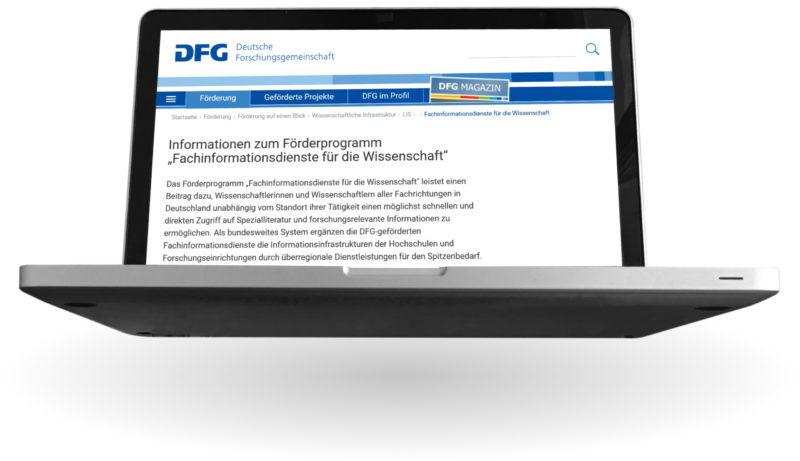 The University and State Library Saxony-Anhalt (ULB) in Halle remains the central point nationwide for special literature on Middle East and Islamic studies. The German Research Foundation (DFG) has decided to make further funds available to the Specialised Information Service Middle East-, North Africa- and Islamic Studies for the further development of its services. Over the next three years, the project will receive around 1.1 million euros in funding.
The University and State Library Saxony-Anhalt (ULB) in Halle remains the central point nationwide for special literature on Middle East and Islamic studies. The German Research Foundation (DFG) has decided to make further funds available to the Specialised Information Service Middle East-, North Africa- and Islamic Studies for the further development of its services. Over the next three years, the project will receive around 1.1 million euros in funding.
Since 2016, the Specialised Information Service has been managed by the University and State Library of Saxony-Anhalt. It acquires literature from the countries of the Near East and North Africa that is difficult to access mainly in the original language. This highly specialised source material in over 30 languages, including Arabic, Persian and Turkish, is made permanently available by the project team to researchers from all over Germany. Digital content is becoming increasingly important. An important project is the collection “MENAdoc”, which now offers more than 15,000 Open Access titles online. The team maintains close contact with the scientific community in order to adjust the service to research’s needs.
“Not only the complete approval of all requested funds is particularly encouraging, but also the statement of the German Research Foundation according to which the FID has a proven a record of great success over the past three years.” says ULB Director Anke Berghaus-Sprengel. In the opinion of the expert group, the service produces very good results in both the core library tasks and innovative services such as the process of secondary publication of scientific papers. The consultations with scientists throughout Germany were also carried out in the best possible way, the experts continued.
Thanks to the funding now approved, the team of the Specialised Information Service Middle East-, North Africa- and Islamic Studies will be able to intensify its work over the next three years. In addition to the acquisition of printed works and digital licences, which are particularly important and sometimes difficult in this field, the further steps will focus on the content and technical improvement of “MENAdoc”, participation in the establishment of the National Research Data Infrastructure (NFDI) and broader public relations work.